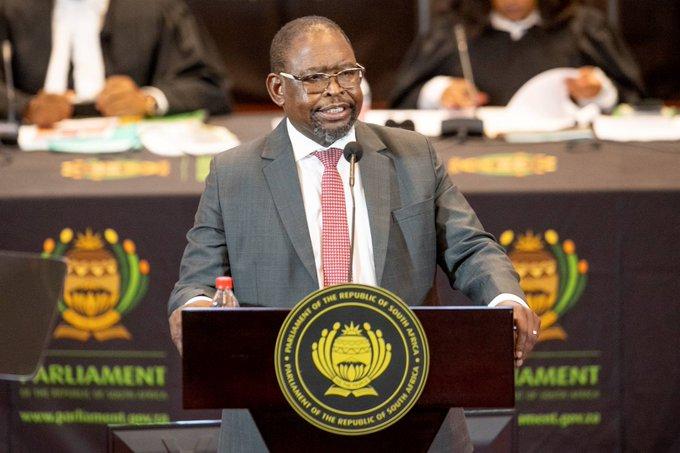Finance Minister Enoch Godongwana has come under fire from opposition parties and even some members of the Government of National Unity (GNU) for presenting what they describe as an unfair and unbalanced budget.
The biggest point of contention is the decision by the National Treasury to increase Value Added Tax (VAT) by one percentage point over the next two years. The move has been widely criticized for its potential impact on struggling South Africans, with many arguing that the government should explore alternative revenue streams instead of burdening taxpayers.
No Consensus on VAT Hike Within the GNU
Godongwana presented his budget policy statement in Parliament on Wednesday, outlining the Treasury’s financial plans. However, his proposal to gradually raise VAT has drawn opposition, even from within the GNU.
Wouter Wessels, a Member of Parliament for the Freedom Front Plus (FF Plus), which is part of the GNU, made it clear that there was no agreement among unity government partners regarding the VAT increase. He vowed to resist any tax hikes that could further strain South Africans already facing economic hardships.
“We’re going to do everything within our power within the GNU to stop unnecessary tax increases that will impoverish more South Africans,” Wessels stated.
His remarks highlight growing divisions within the GNU over economic policy, raising concerns about how effectively the coalition government can work together on key financial decisions.
ACDP Calls for Alternative Solutions
The African Christian Democratic Party (ACDP) has also expressed strong opposition to the budget, arguing that the government should focus on recovering stolen funds instead of raising taxes.
Steve Swart, a senior ACDP member, pointed out that vast amounts of money remain unaccounted for due to corruption, and if recovered, these funds could help balance the national budget without imposing additional burdens on taxpayers.
“Let’s collect the billions of rand sitting overseas in bank accounts through state corruption,” Swart said. “Let us collect the R800 billion that is owed to SARS [South African Revenue Service]. In that manner, we can balance the books.”
His comments reflect a broader frustration among opposition parties regarding the government’s handling of corruption-related financial losses. Many believe that tackling corruption and improving revenue collection should take priority over increasing VAT, which disproportionately affects lower-income households.
Opposition Parties to Vote Against Budget
Given the strong pushback against the proposed VAT hike and concerns over other budgetary decisions, most opposition parties have indicated that they will vote against adopting the budget.
The move signals potential challenges for the government in securing parliamentary approval for its financial plans. With opposition parties uniting against the budget, the GNU may struggle to pass the proposals without making significant compromises.
This opposition reflects deeper dissatisfaction with the government’s broader economic strategy. Many political leaders argue that instead of increasing taxes, the government should focus on cutting wasteful spending, improving tax collection, and stimulating economic growth through investment-friendly policies.
A Tough Road Ahead for the Budget
As debates over the budget continue, Godongwana and his team will need to engage in further negotiations to secure support for their financial plans. The growing resistance from within the GNU suggests that the unity government is facing internal tensions that could impact its ability to govern effectively.
With South Africa’s economy struggling to recover from years of sluggish growth, rising unemployment, and persistent corruption scandals, the government’s ability to navigate these financial challenges will be closely watched.
Opposition parties have made it clear that they will not support a budget that they believe harms ordinary citizens. Whether the government can address their concerns and secure the necessary votes remains to be seen.
For now, the battle over the budget is far from over, and South Africans will be watching closely to see how these political and economic debates unfold in the coming weeks.

